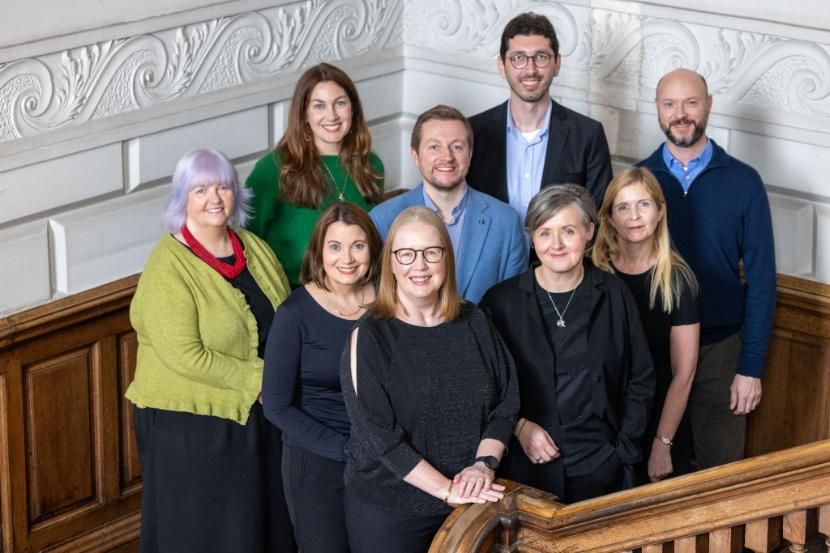Researchers begin study investigating shared languages and identities on the island of Ireland
Posted on: 20 November 2025
A new research project studying the languages and identities shared across different communities in Ireland is set to begin its important and timely work next month.
'LIFELANGS – A Living Observatory of Shared Languages and Identities' will be launched at an online event on Thursday, December 4th. In advance of the launch the team are running a logo competition open to under 18s, with a closing date 25 Nov.
The project is led by linguists Prof. Lorna Carson, from Trinity’s School of Linguistic, Speech and Communication Sciences, and Dr Aisling O’Boyle, from Queen's University Belfast. The team secured funding of €3.7 million earlier this year from the North-South Research Programme, administered by the Higher Education Authority.
 The LIFELANGS research team
The LIFELANGS research team
Lorna Carson, Professor in Applied Linguistics in the School of Linguistic, Speech and Communication Sciences, explained: “LIFELANGS will gather knowledge from the fields of language, education, and social sciences to produce practical, research-based resources for everyone. This project will build better understanding of how to build better shared dialogues, more social cohesion, and greater inclusivity for a shared future on the island of Ireland. Our goal is to help build a more inclusive stronger future for everyone.”
People in Ireland north and south have expressed the desire for a more inclusive society, with a focus on better supporting language learning and promoting understanding between different cultures. The LIFELANGS project will highlight the diversity of languages and cultures by working with local communities to observe how people use different languages and live in a variety of cultural settings, as well as shared values and cultural activities. The team will work with a wide range of external partners to reach every county in Ireland, including schools, NGOs, charities and community groups.
Dr Aisling O’Boyle, Queen's University Belfast, added: “Our first task will be to design a multilingual and multimodal corpus representing the linguistic diversity on island, and to start to collect the language data to fill this corpus. By the end of the project in 2029, this will be available to the public as an interactive searchable multilingual website that can be used for educational and research purposes, with information about all the languages spoken, signed and seen in Ireland.”
LIFELANGS project streams:
1) Language Riches: collect information about the rich linguistic and cultural diversities of communities on the shared island of Ireland, from every county in Ireland north and south. This will be shared in a large multilingual and multimodal corpus that will be available online for the public to search and use.
2) Lived Identities: examine how cultural and linguistic identities intersect with dimensions such as age, gender, class, health, disability, sexuality, race, religion, and ethnicity. This will be collected through a large national survey.
3) People, Places, Purposes: investigate how speakers and communities learn, use, (and sometimes lose) and teach spoken and signed languages in different contexts (e.g. school, work, family, online). This will be collected through a large national survey.
4) Shared Resources: develop of a suite of free evidence-based language and intercultural awareness education tools for a shared island.
Find out more on the LIFELANGS website.
Media Contact:
Fiona Tyrrell | Media Relations | tyrrellf@tcd.ie | +353 1 896 3551
